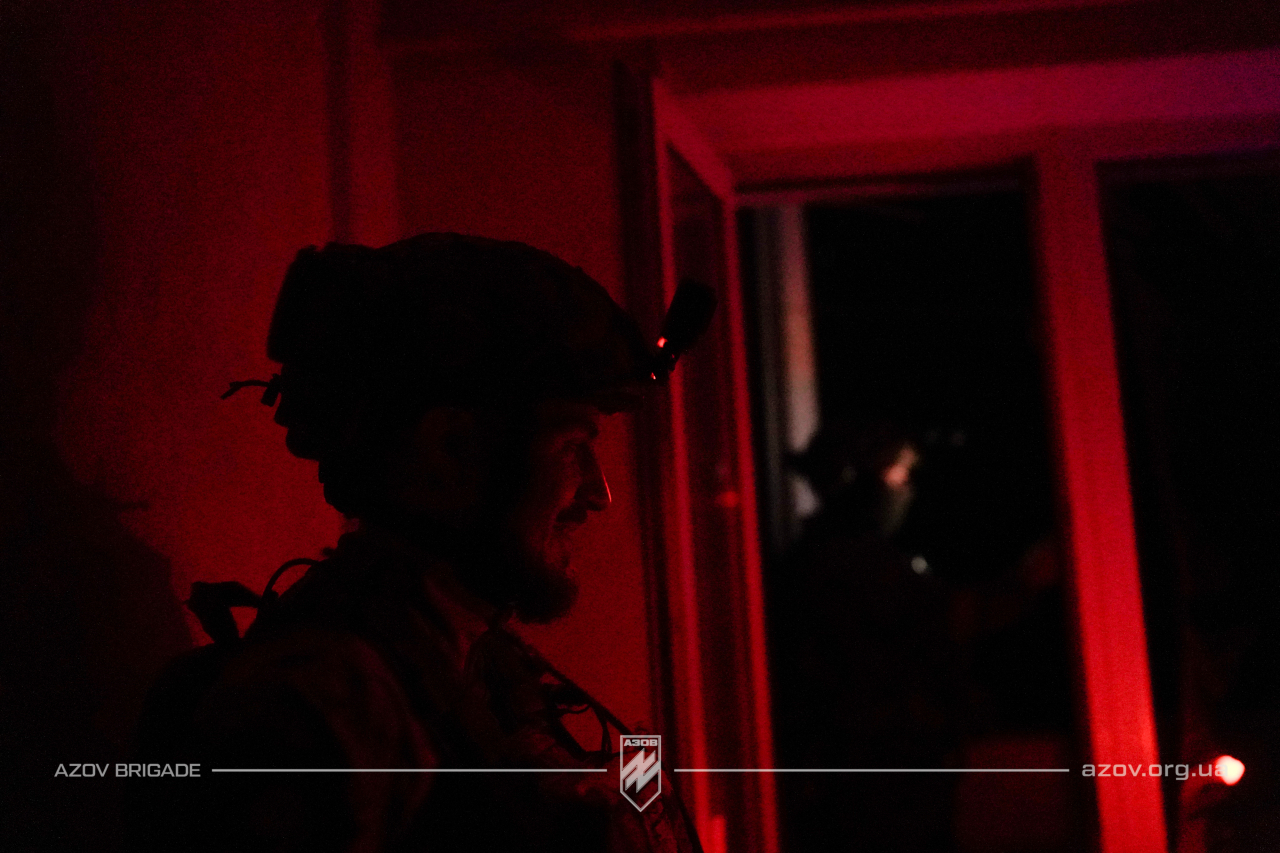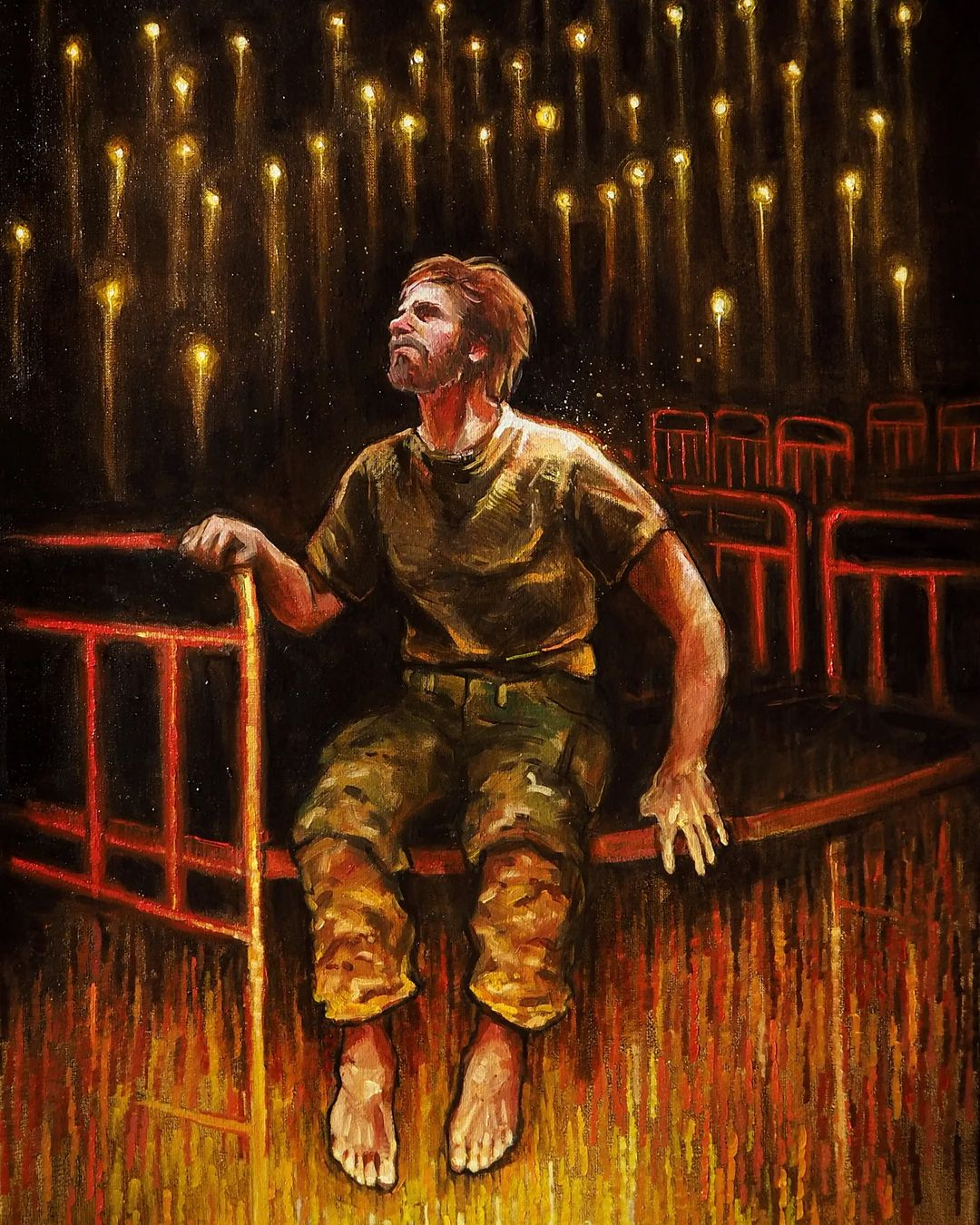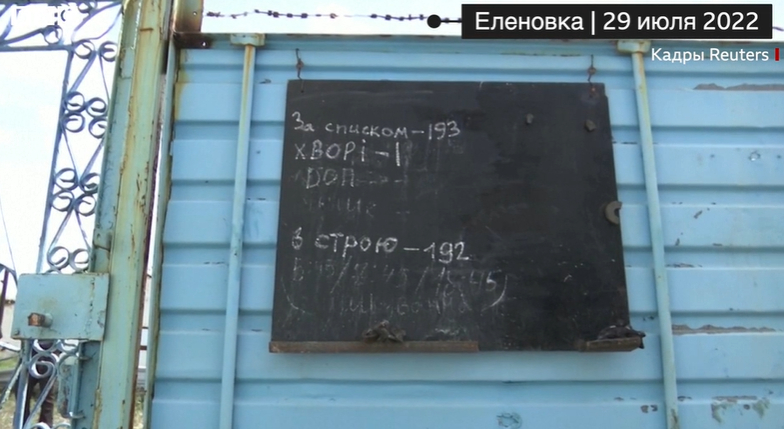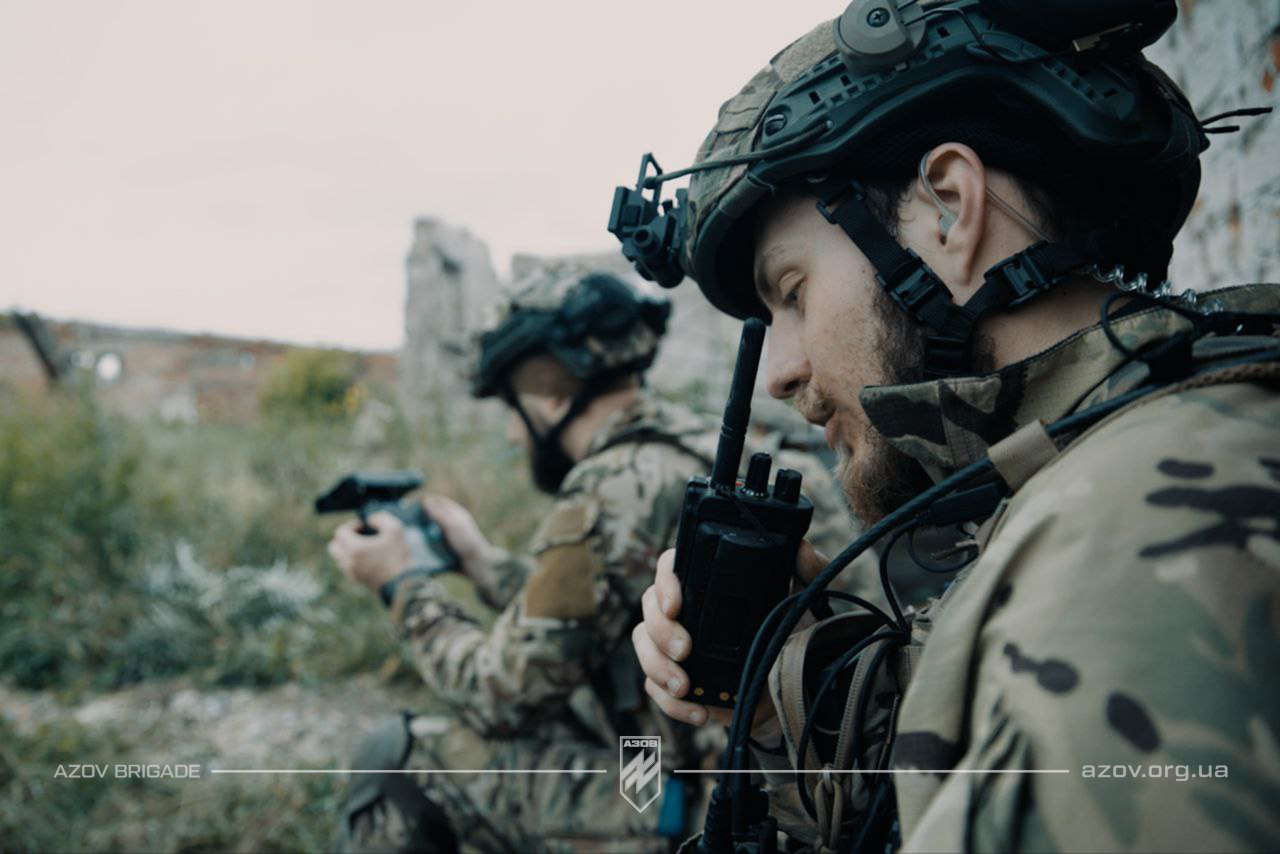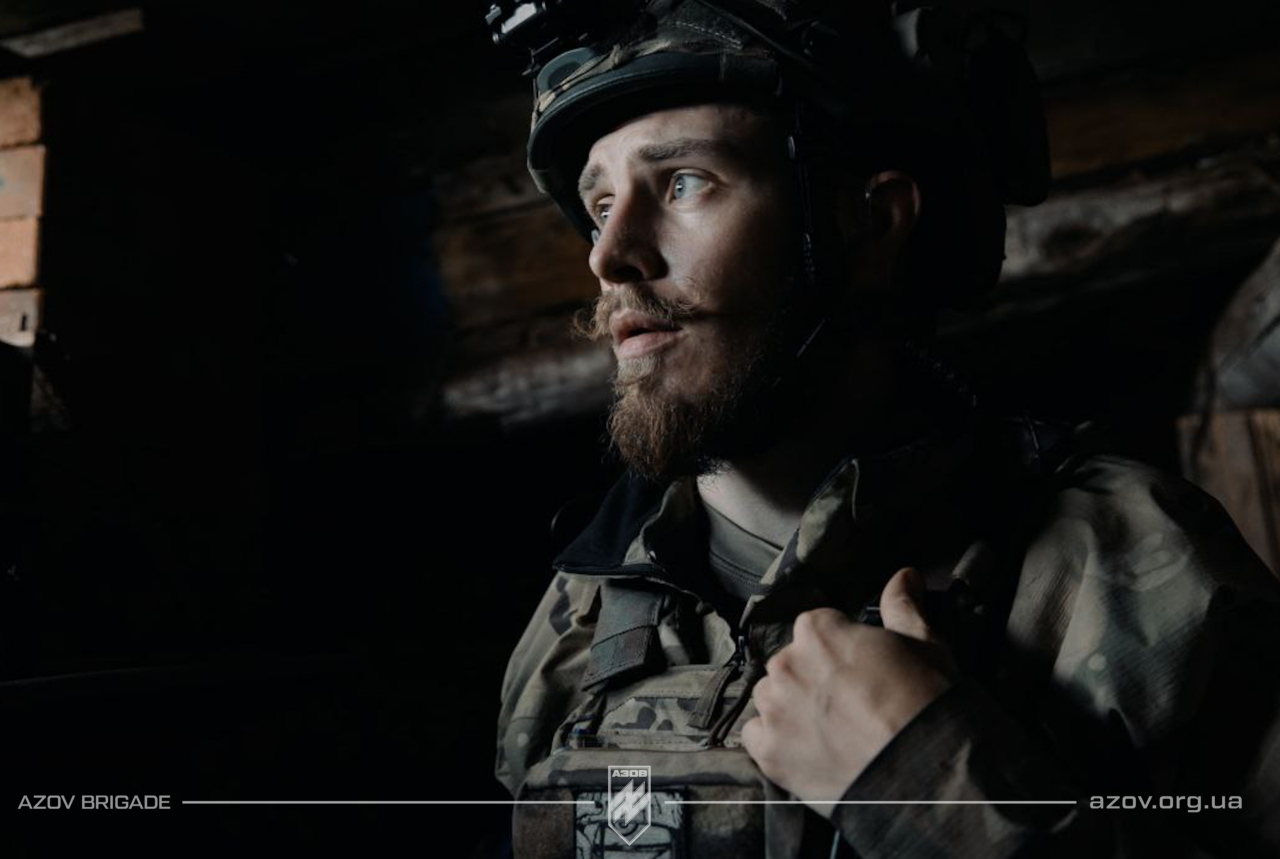The story of Kraft, an Azov Brigade soldier who survived the Russian terrorist attack on the prison camp in occupied Olenivka

"I think my most vivid memory is the smell. A strange, even somewhat toxic smell of smoke, of burnt bodies." This is how "Kraft", a 23-year-old member of the Azov Brigade, recalls the night he survived two years ago.
He took the alias "Kraft" in honour of his favourite computer game, Minecraft. He celebrated his 20th birthday at a young fighter course, his 21st at a military training ground, and his 23rd in the Kreminna Forest in Luhansk Oblast. The young soldier has survived serious injury, gruelling battles in the city of Mariupol in Donetsk Oblast, and a Russian terrorist attack on a prison camp in the occupied settlement of Olenivka.
On the night of 28-29 July 2022, the Russians blew up the so-called Barrack 200 after 193 Azov Brigade members who had defended the Azovstal steelworks in Mariupol were deliberately moved there. Fifty-three of the defenders were killed in the terrorist attack.
Two years on from this bloody Russian crime, none of the occupiers have been punished. The fate of the many Azov defenders who survived is unknown.
Kraft was relatively lucky, having survived and returned home in the "big prisoner swap" on 21 September 2022. A few months later he returned to duty and became a UAV operator.
Kraft told Ukrainska Pravda. Zhyttia about the Russian terrorist attack on Barrack 200 and life after the explosion. What follows are his own words.
"I had plans to withdraw from Azovstal on my own"
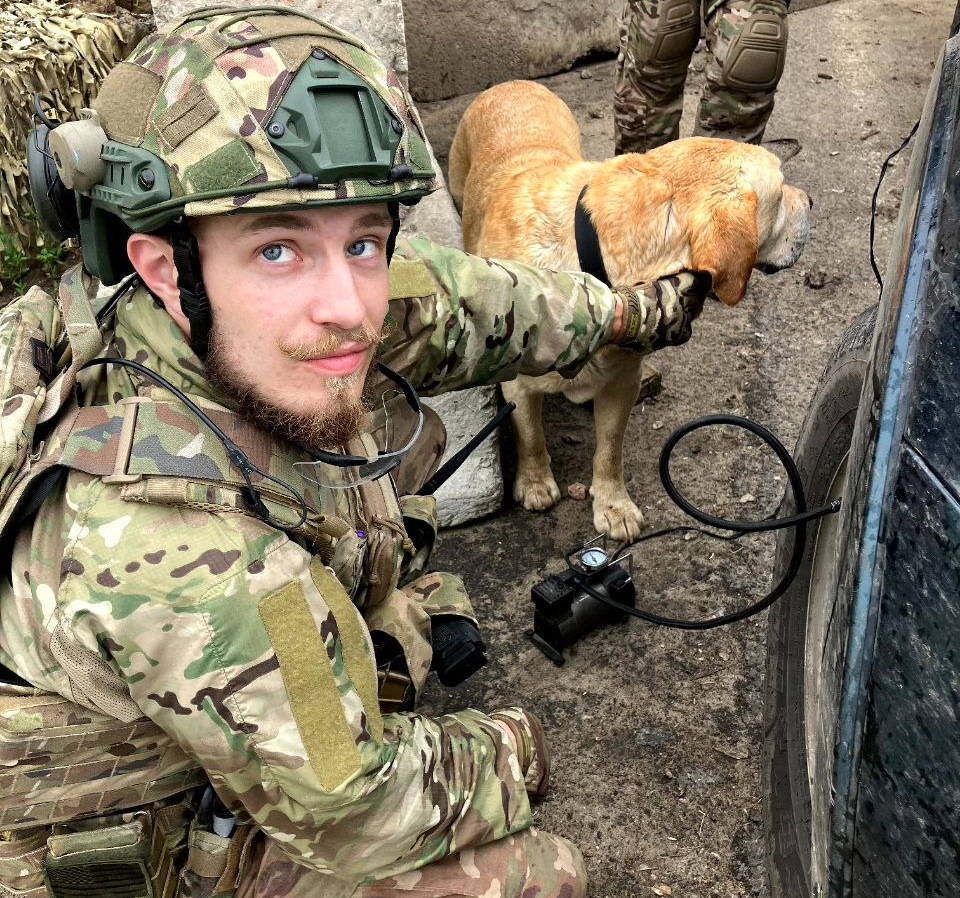
Before I joined the military, I was a student. First I studied cyber-security, then telecommunications and radio engineering. In 2020 I realised something was going to kick off soon, so first of all I went to the military department at my university. I wasn’t convinced by those majors and decided to join Azov. I had some friends who were serving there, and my commanders were cool.
For me, the defence of Mariupol started at the Azov Sea coast. We were always doing training and exercises there. So in February 2022 we – along with adjacent divisions of the National Guard of Ukraine – spent a few days on the coast, watched the ships sail by, and then returned to the garrison.
On 22 February, we were told that complete mobilisation would likely be announced. I sent some of my belongings home, keeping only the most important things. On 24 February we were woken up about 10 minutes before the first Russian strikes on the territory of Ukraine. I started boiling water for coffee, took a shower, and had just started getting dressed when I heard explosions. After getting ready we went to the Skhidnyi district of Mariupol and held the defence there until 5 March or so.
We then had to relocate to the city centre so that there were enough forces to hold our positions and wipe out Russian equipment and personnel in mobile groups. We transferred to the Azovstal plant at the end of April, and were one of the last units to do so.
I started out as the commander of the group, then became a unit commander, but I was wounded and had to spend two weeks at the command post helping the commander coordinate the fighting.
When I got a bit better, I started performing special missions which included seeking out positions, carrying out assault actions, conducting reconnaissance, and laying mines. We fought the occupiers for every street, every district.
The intensity of the artillery attacks lessened when we were in close proximity to the enemy, but once we entered the grounds of the Azovstal plant, not even five minutes could go by without something being launched towards it. They [the Russians – ed.] were bombing civilians.
On the night of 14 or 15 May, our commander came and said that the only chance to save the injured people was to surrender into Russian captivity. I had planned to withdraw from Azovstal myself – there were many ways of doing it – but I asked the people I considered an authority what they would do.
They said that it was better to leave with the others so as not to leave our guys in the lurch, and to prevent the Russians from hurting our injured people.
I then opened up my backpack, which contained some cool snacks that we had been working our way through over the past few days. Porridge, soups, instant noodles – these were untouchable stocks that I’d kept in case we had to go to the city of Zaporizhzhia. I felt no emotions: they had ceased after the first few losses of my fellow soldiers.
"The Russians would find old ladies who’d testify for a package of buckwheat"
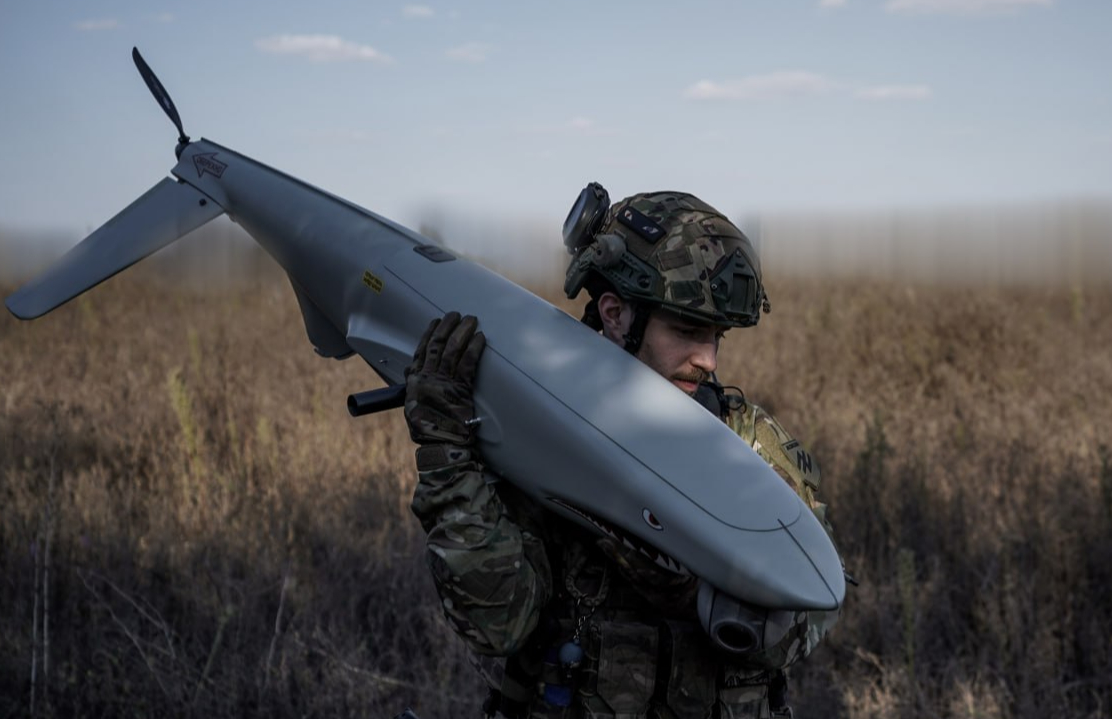
We arrived at the prison camp on 20 May. The staff spent about a day searching us, writing down our personal details, and allocating us spaces in the barracks. Our barrack, designed to hold 50 people, was filled with over 300. Luckily they didn’t take my sleeping bag and sleeping pad, so I slept outside.
The food was bad during the first few weeks because the kitchen was not prepared for this number of people. We might have breakfast at 06:00 and dinner at midnight or two in the morning.
Everything got a bit better with time, and we started eating more regularly and talking with each other more. We found books, played chess, made playing cards, trying to entertain ourselves somehow so as not to go insane.
We were not searched intensely in the first few days at the camp, so the guys snuck in a lot of great books from Ukrainian publishing houses, lots of Ukrainian and world literature.
Some kind-hearted prison staff let us take one or two books from the club where we were interrogated by members of the Russian Federal Security Service (FSB) or representatives of the Investigative Committee of Russia (SKR). There were fairy tale books left there, as well as textbooks on Ukrainian language and literature, geography, algebra and geometry.
The club is one of the buildings within the Olenivka prison camp. Nearby was a disciplinary cell where at first women were held, and later anyone who "broke the rules". There were also three barracks where only Azov Brigade soldiers lived, and I was in one of them.
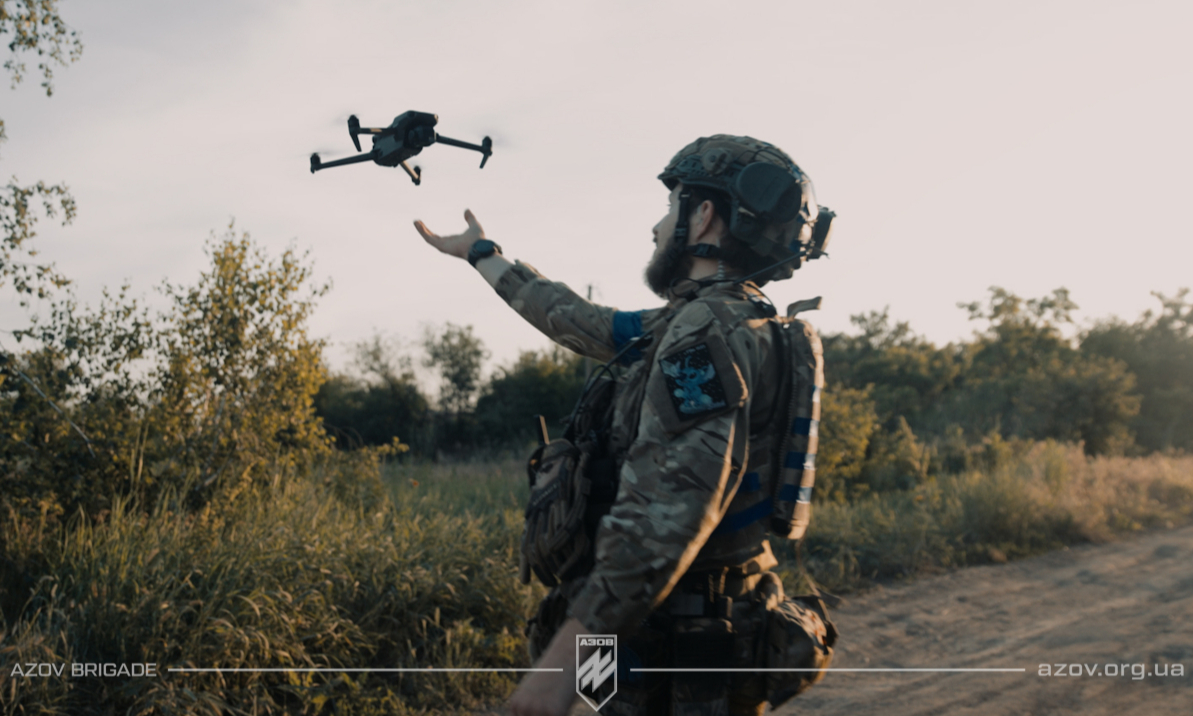
My fellow soldiers were tortured. Personally, I was only slapped in the face or kicked in the ass a few times. They weren’t really interested in me back then because I was registered as a private in my documents. I was just told: "Write that your commander made you shoot some civilian or steal something from an apartment, and you’ll be sent to a prisoner swap earlier." I told them that hadn’t happened and I would not write anything.
During the first prisoner swap in June, our side released some convicted Russian soldiers. Then the SKR representatives arrived and churned out falsified cases against us from 09:00 to 18:00. Some were alleged witnesses, others were the "heroes of the occasion". These cases were entirely made up. They were probably offended that they got their war criminals back.
Next, they just started making up crimes for each division. They decided that the artillery units were guilty of destroying houses, the reconnaissance men or snipers of killing people, most often families with children, and the tank crews of destroying museums. They’d find old ladies who, for a packet of buckwheat, would testify to having seen a Ukrainian sniper shoot someone. There were no limits to their imaginations.
The Russians also came up with such tricks as suggesting that PoWs from other units "meet the investigation halfway" and give evidence against some of their brothers-in-arms. For this, they were promised a faster exchange or larger rations. Some of the prisoners agreed.
Read more: Olenivka. The worst night of my life
"I felt a hole in my stomach." The night of the terrorist attack
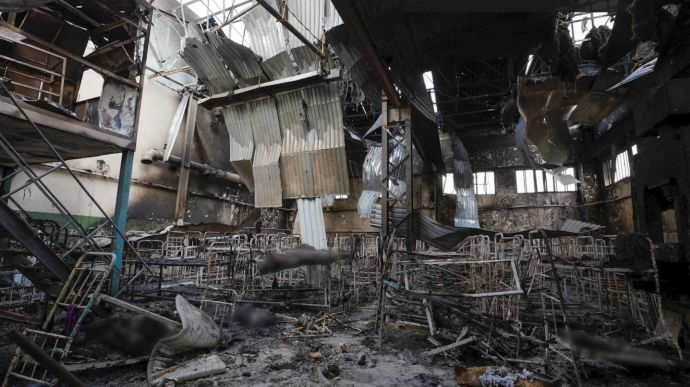
A few days before the terrorist attack, the Russians came with lists and gathered 50-60 people from each of the three Azov barracks. They were taken to the workshop (Barrack 200). A team of other prisoners of war who worked there said it had been prepared specifically for us. The warden came and said, "We want to renovate your current barracks, so you’ve been moved here."
We didn't believe what he said, because it was illogical. If that had been true, they would have relocated one barracks, renovated it, and moved the PoWs back in. Instead, they just took some people from different barracks in no particular order. There were commanders, soldiers, gunners, reconnaissance men, and people who’d been civilians until 24 February when they joined our military unit. But all of them were Azov defenders.
The workshop conditions were poor, and there was very little space. We slept almost on top of each other. Summer, heat… there was no way to wash your face. There were two 1,000 litre barrels of water but no taps for them, and so on the last day, we began to fit them ourselves.
They put a razor mesh around the fence of our barracks, then moved their observation post 30-50 metres from the barracks’ fence, fortified it, and dug trench structures there the day before the terrorist attack. It all happened over just a day and a half.
Previously we had been guarded by employees of the Russian Federal Penitentiary Service who were wearing insignia. But on the day of the terrorist attack, there were about ten unknown people in black, wearing balaclavas, with no insignia. It's also interesting that an electrician wired our barrack up on the last day before the terrorist attack. They locked us up in the exercise area for that time. We didn't know what they were doing. It was just before lights out on the day when the explosion occurred.

We woke up and did our usual stuff on 28 July 2022. After dinner, I went to wash up and noticed that some kind of drone was lingering over our barrack when I was passing through the exercise area. At the time I didn't really understand, but later I figured out that it was a DJI Matrice, because I saw the green and red lights they have. That happens when the operator forgets to enter invisibility mode.
I paid attention to this and told my brothers-in-arms. When everyone started looking up, the operator probably realised something was wrong and turned off the lights.
Just then, a Grad multiple rocket launcher started firing outside the barracks. This was nothing new for us because the Russians were constantly firing Grads from outside the prison camp. That night, we were forbidden to go outside and told not to leave the sleeping area – we were only permitted to go to the toilet, one person at a time.
I went to bed, and woke up when I was wounded, and by the sound of the second explosion. I felt that something was wrong. I had a hole in my stomach, internal bleeding, and my body was burning. I examined myself and saw that my limbs were all right. I knew I had to get out when I saw the thick smoke. The barrack was already on fire. I saw the burned bodies of my brothers-in-arms "melted" into the beds. I saw my comrades, Tower and August. They were dead.
I remember the smell most of all. A strange, even toxic smell of smoke, the smell of burnt bodies, bright flames over the roof, and glass wool falling on you like a thousand tiny needles. At one point, it was as if I was in a soundproof room, everything slowed down and I was watching from the side. This sensation continued right up to when I was carried out on the asphalt.
I called out to a comrade of mine who was running past and he examined me. The Russians had already started firing into the air. We were forbidden to go beyond the kerbs and told to lie on the asphalt so that no one was on the grass. The doctors were not allowed to examine us for about an hour. I lay there for a very long time.
Then our medics, who were also prisoners of war, appeared and tried to sort the wounded and help those who could still be saved. They had minimal medical supplies, and the guards just threw us a piece of sheet for us to use as bandages.
When I asked if there were any painkillers, I was told that there were only cold remedies, powders that contain paracetamol. I refused because those won't help with the sort of injuries I had.
I had second priority for evacuation. One of my brothers-in-arms, who goes by the alias Lemko, was sitting next to me and trying to talk so I wouldn't fall asleep. Around 06:00, when it was light outside, I was loaded into an Ural off-road vehicle. We were stacked up and taken to the hospital.
Hospital, HIMARS and propaganda stories
My diagnosis was a penetrating wound to the abdominal cavity, a damaged pelvic bone, and shrapnel in the right hip joint, with numerous burns and small shrapnel wounds all over the body. I found out from the surgeons who operated on me that when I arrived, I had just over a litre of blood left.
"You're lucky you've been doing sports all your life because your heart has pumped you out," the doctors said.
We were fed three times a day. Only we ate worse on the weekends because when the superiors went home, the old ladies from the kitchen used to take food home with them.
The doctors treated us normally and provided us with proper medical care. There were enough painkillers. I even gave them up when I got used to them and only took painkillers before going to bed, if I couldn't sleep.
The young men from the security battalion also treated us normally. They were just interested in everything about Mariupol – they were a bit brainwashed by the propaganda and kept asking us about the biolabs.
Some of the old cleaning ladies would go on about Banderites, Nazis and fascists. One woman said: "You killed my son. Why should I clean your room?"
"Don't clean it then," I answered.
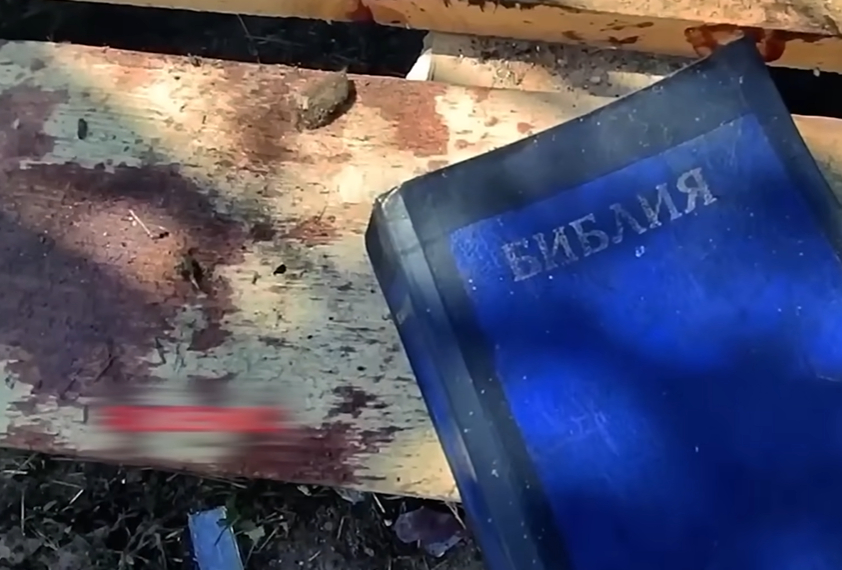
Some Russian journalists came to the hospital and filmed me, but I don't recall the first time it happened since I was unconscious in the intensive care unit.
We were told that Ukraine had hit the barrack with a HIMARS rocket, but at the time I had no idea what HIMARS were because these weapons arrived in Ukraine after we had been isolated from any kind of outside information. The first time I saw how they work was when one of the guards showed me a video of some HIMARS destroying a convoy of equipment. I told him that if it had been HIMARS, there would have been nothing left of us.
It was immediately obvious to us that the Russians had done it. We were all gathered in one spot, and the Grads had been deployed, indicating an obvious provocation. I assume it was a thermobaric charge that might have been placed while the power lines were being managed.
Once, some kind of degenerate approached me, a "journalist" from a Russian YouTube channel in the "Donetsk People’s Republic" [self-proclaimed and non-recognised quasi-state formation in Donetsk Oblast – ed.] He showed me some interviews with old ladies from the trauma department of the same hospital, who claimed that "a sniper shot them in the arm". He wanted to know what I thought about it.
I told him that I despise any unlawful actions by the military against citizens. He didn't like that. He stormed out of my ward and went off to bother my brother-in-arms, Maslo.
"It was weird going out into the world because I didn't know the memes": the prisoner swap
I was on the top floor of the 15th hospital, which was guarded by a battalion. The guard who was the most reasonable entered the ward and asked, "Would you spend 12 hours being thrown around in an Ural truck?" I was just starting to walk then after being injured, but I joked, "If I was being exchanged, I’d stand it for a whole day. If I was being taken to Russia, then no." He told me there was going to be an exchange and added me to his list.
A few days later, some Russian officials arrived and began gathering us together and listing us all. At first, I assumed we were going to be transported somewhere because an artilleryman from Azovstal had been brought into the hospital earlier, having travelled all over Russia. He had been tortured in every prison, and in Taganrog, he had been beaten so severely that his right leg was completely blue and he had a haematoma across half his back. I assumed the same would happen to us.
First we were brought to Olenivka and loaded into another Ural truck. They were so tightly-packed that we were sitting on each other's legs. At that stage, everyone was thin and bony, with bones protruding all down our spines.
When we boarded the plane, they began calling out our names. When numerous commanders’ names were called out, I assumed we were being transported somewhere or that "testimonies" had been written against us and that we were about to face a bogus trial.
We flew from Taganrog to Moscow, where we picked up our comrade Tavr, and then on to Gomel, Belarus. We were put on a bus and driven to the border. The Belarusians got on the buses and said, "Guys, calm down, don’t mess around, you are going to be exchanged."
They looked terrified to me. They’d been continually fed propaganda that we were Nazis and fascists who could kill nearly an entire company of soldiers with a broken fingernail. But the Belarusians were far better than the Russians and people from the "Donetsk People's Republic".
When the exchange took place, a representative from Ukraine's Defence Intelligence came up to us and said in Ukrainian, "Guys, you are home." We were able to see the other guys who’d been brought back in the swap. Of course, everyone’s appearance had changed significantly. I’d lost 27 kg, and some of the guys had lost 40.
The next day, my family visited me in the hospital. They were perplexed, and concerned about something related to PTSD, but I assured them that everything was all right; it would just take some time. My family and I figured everything out with help from a therapist.
It seemed weird to return to the world after seven months of isolation, because I didn’t know any of the memes. My brother-in-arms' wife was with me in the hospital, and she spent a week bringing me up to date and showing me memes about "chmonia", Viktor Medvedchuk, and Oksana Marchenko. ("Chmonia" is an Internet meme that emerged in March 2022 as a mockery of the awkward appearance of Russian servicemen involved in Russia's invasion of Ukraine.)
It was also surprising to me that so much high-quality Ukrainian music had come out. I listened to it exclusively throughout my first week in the hospital, even though today, many of the songs are deemed lame and bairaktarshchyna [new Ukrainian pop music that incorporates military symbols; the name comes from the Turkish drone Bayraktar, widely used by Ukrainian forces at the beginning of the full-scale invasion – ed.]. I began listening to cool artists.
"The consequences of captivity will remain with me for life"
When I left Azovstal, I weighed approximately 60 kg. After the exchange, having weighed myself in Chernihiv, I weighed 37. This was caused by a wound in my gastrointestinal tract that prevented regular meal absorption.
I underwent four months of therapy and recovery in a rehabilitation centre; within two weeks, I had restored my physical fitness and refused sick leave, allowing me to immediately return to the unit.
We were exchanged in September, and by February I had gone to the Zaporizhzhia front. What motivated me? I had experienced some of the realities of Donetsk, including dread, darkness, and a literal Mordor. I do not want this to happen to anyone.
I led the radio-technical intelligence unit, but I wanted to be on the move more and grabbed every opportunity to go off on missions with the boys. When the unit was constituted, I discovered that my brothers-in-arms had begun to form the sixth battalion. Lemko offered me a role, and Redis agreed. So since March or April, I’ve been an officer in the 6th battalion of the Azov Brigade.
Of course, some of the effects of captivity will be with me for the rest of my life. My memory has got a lot worse. I’ve improved in my work because I lack the emotional component and always make decisions with a cool head. However, due to my injuries, I will never be able to return to my previous physical state.
My brothers-in-arms must be exchanged, because the terrorist attack on Olenivka is not the first or the last act of intimidation, a demonstration of Russian impunity.
I was held captive for four months, and some have been being tortured for the past three years. We have to fight for them. We need victories, not "peace" accords.
By Olena Barsukova
Translation: Polina Kyryllova, Yuliia Kravchenko and Theodore Holmes
Editing: Rory Fleming-Stewart
